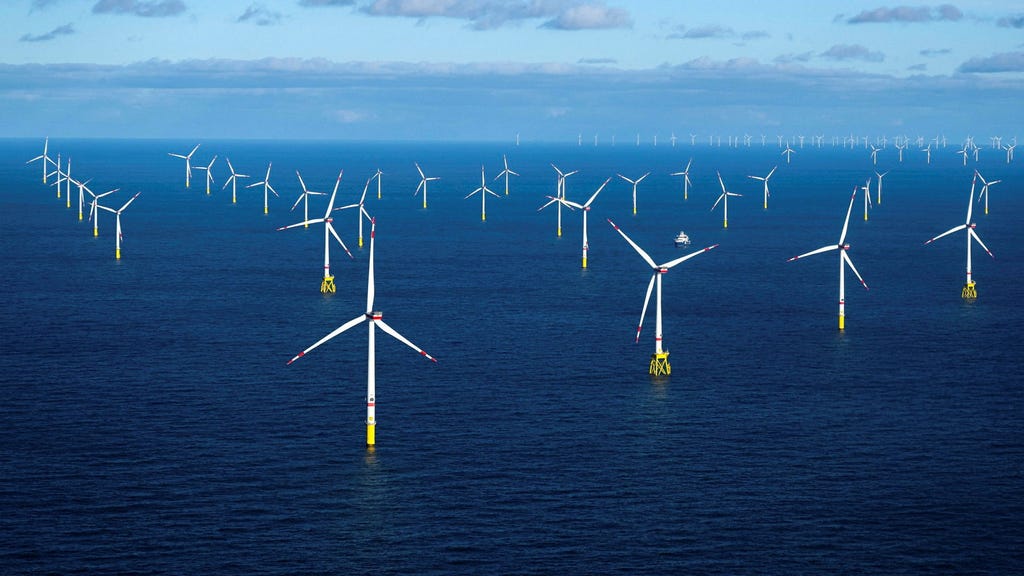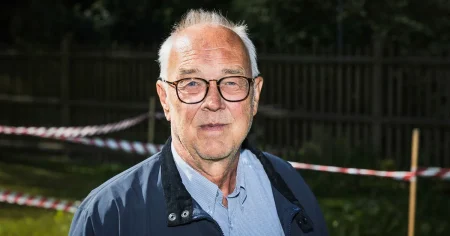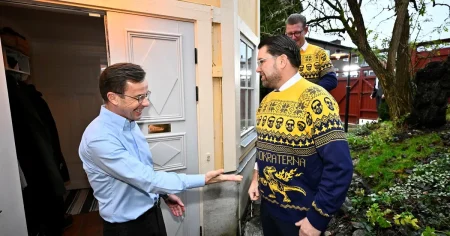A government-commissioned inquiry into offshore wind power development in Sweden, submitted on Friday, recommends the government designate specific areas suitable for wind farms. This proactive approach aims to enhance predictability in energy projects, mitigating the risk of late-stage interventions by defense authorities or municipalities, which have often hampered progress. The report also underscores the necessity of state support for offshore wind power development, acknowledging the significant financial investment required.
The Social Democrats have responded to the report with cautious optimism. Fredrik Olovsson, the party’s spokesperson on business policy, stressed the urgency of processing the numerous existing applications for offshore wind projects. He argues against delaying these projects, emphasizing their potential to contribute quickly to the national energy supply, particularly in southern Sweden, where electricity prices are highest. Olovsson calls upon the government to swiftly implement a new system for offshore wind power to address the energy needs of this region. While welcoming the report’s recommendations, the Social Democrats underscore the importance of immediate action on existing projects alongside long-term strategic planning.
The Green Party echoes the call for urgent action, expressing concern that the proposed auction system for offshore wind farm development shouldn’t become an excuse for government inaction. Daniel Helldén, the party’s spokesperson, argues that the auction system, while potentially beneficial in the long run, is irrelevant to the immediate energy needs of the country and the pressing demands of industry. Helldén warns against delaying current wind power development in anticipation of a potentially improved future system, emphasizing the risk of exacerbating the ongoing energy crisis. He also highlights the critical need for expanding offshore cable infrastructure and integrating wind power development with defense requirements. The Green Party’s perspective emphasizes the need for concurrent action on multiple fronts: streamlining existing projects, planning for future development, and addressing related infrastructure challenges.
Center Party representative Rickard Nordin aligns with this urgency, cautioning the government against using the inquiry as a justification for rejecting further offshore wind applications. Nordin stresses the necessity of swiftly implementing these projects to alleviate high electricity prices. He further advocates for a government rethink on the proposed auction system, urging the inclusion of a developed offshore grid, a strategy adopted by Sweden’s neighboring countries. This perspective highlights the importance of learning from successful models implemented elsewhere and integrating grid development into the overall strategy for offshore wind power expansion.
The call for immediate action resonates with industry representatives as well. Miriam Münnich, a business policy expert at Teknikföretagen (the Association of Swedish Engineering Industries), underscores the need for prompt government action to incentivize investment in offshore wind power. She warns that without supplementary proposals and measures, years of planning and investigation by businesses and permitting authorities risk being wasted, further delaying the development of the electricity system. Münnich emphasizes the potential for severe consequences for Swedish industry if the current negative trend is not reversed. This industry perspective underscores the economic implications of government inaction and the potential for lost opportunities in the face of global competition in the renewable energy sector.
In summary, the inquiry’s recommendations to designate suitable areas for offshore wind farms and provide state support have been met with cautious optimism, tempered by a strong emphasis on the need for immediate government action. The consensus among political parties and industry representatives is that while long-term strategic planning, such as the proposed auction system, is important, it should not supersede the urgent need to address current energy demands. The risk of hindering ongoing projects and delaying the development of the electricity system is seen as a major concern, with potential ramifications for both consumers and industry. The call for a comprehensive approach—one that simultaneously addresses immediate needs, facilitates long-term development, and integrates related infrastructure challenges—is clear and consistent across the various stakeholders.














